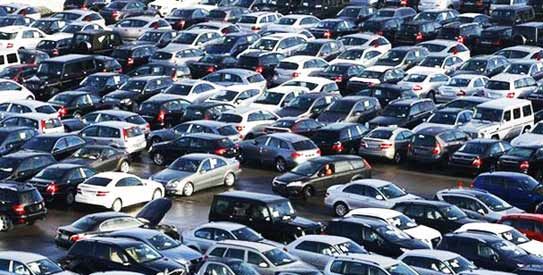Pakistan has a vibrant automobile industry. A survey of the streets shows the variety of cars available in the country. From compact cars to passenger saloons, hatchbacks, large luxurious SUVs and executive cars all vehicle types are available. However, there is no home-grown car brand. The closest vehicles to an indigenous car brand are locally assembled cars which face stiff competition from imported cars. In addition, the market is dominated by Japanese car makers. There are three big car assemblers namely Pak Suzuki Motors, Toyota Indus Motors and Honda Atlas which together account for a huge part of the car market of Pakistan. A number of firms help in the sales and distribution of these cars. In addition to showrooms and dealership networks, there are website based businesses which help in selling cars such as Carmudi.pk. Available models are listed on their website, customers can browse around, find their preferred vehicle and then buy it directly from the car dealer.

Sales of locally manufactured cars
The year 2013 saw the combined sales of local car assemblers decline by around 22% in 2013. This can be attributed to a number of factors. Firstly, sales are responsive to consumers’ purchasing power. In Pakistan, the high inflationary pressure on each individual makes them hesitant when they have to buy a new car. In addition, running, maintenance and fuel expenses also drive up the cost of owning a vehicle and result in a fall in demand. Another reason for the negligible growth of local car sales is the overall slow economic activity in the country. Frequent disruptions in power supplies, constant increase in electricity tariff, stiff competition from an influx of imported cars and tax structure of the country which places additional burden on the end consumer. The restructuring in vehicle registration fees, vehicle tokens and other road taxes increase the cost of purchasing a new car. In addition, the finance bill of June 2013 placed a one percent additional sales tax on original equipment manufacturers which resulted in further increase in cost of production which translated into increase in selling price.
Impact of imported cars
The import of cars negatively impacts the local manufacturers. The poor performance of local cars could also mean that locals prefer imported cars. Their reluctance to buy local cars can be because of the notable difference in quality and performance between the two kinds. The superior quality of materials used, workmanship, final finishing and world-class fitting of all components are a few things which go in favor of imported cars.
Local manufacturers ask for ban on imports
Keeping in mind the market trend and consumer demand, the local manufacturers are asking the government to implement protective policies and ban cars coming into the country. If the numbers of imported cars continue to increase and sales of local cars drop, then many thousands of workers will lose employment.